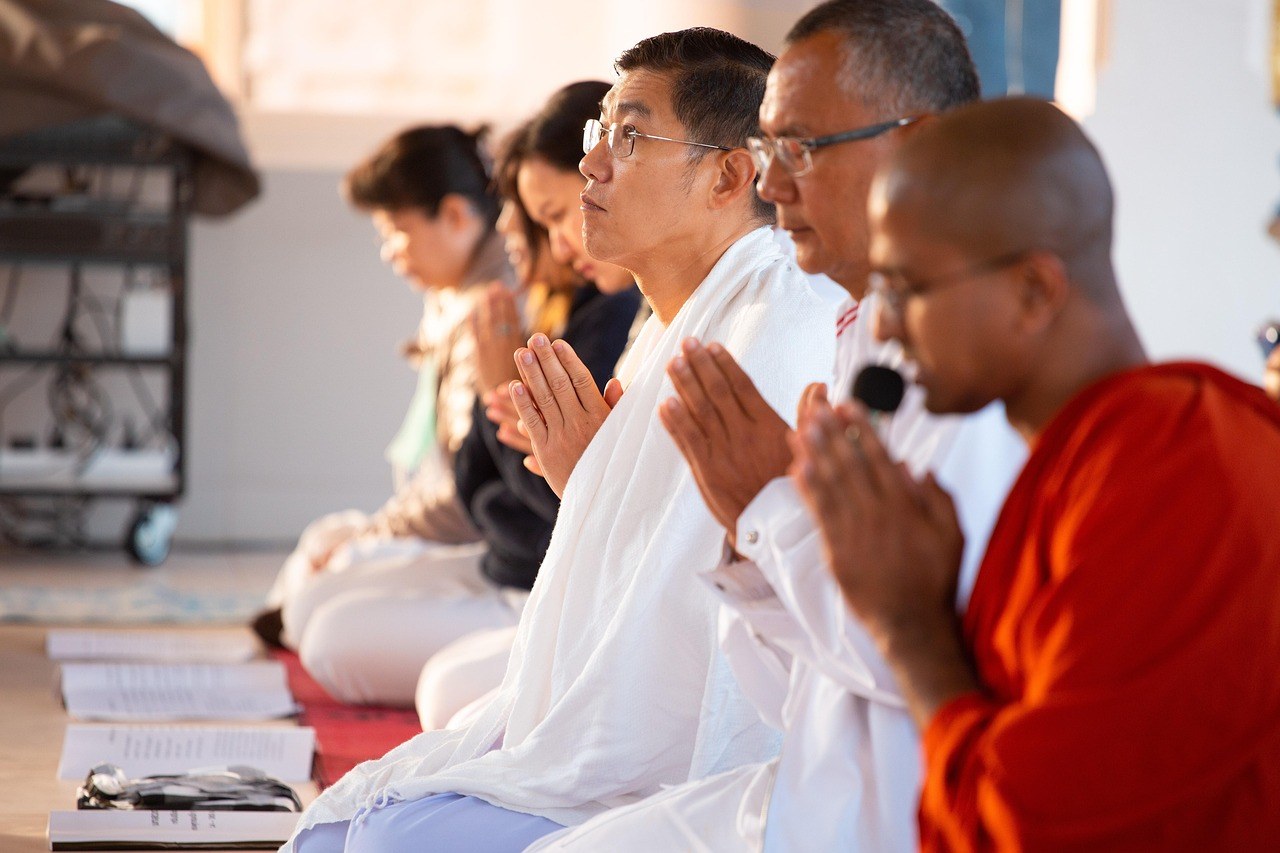The campaign ads are loud, the headlines are louder, and your home – the place that should feel steady – suddenly echoes with tension. You and your partner don’t see the ballot the same way, and that gap can feel like a canyon. You are hardly alone: couples across the spectrum are navigating political differences while trying to protect what matters most. The good news is that thoughtful choices, clear boundaries, and a bit of humility can keep affection from getting drowned out by the noise of the season.
When beliefs collide: are you truly incompatible?
Disagreement by itself isn’t a verdict. Compatibility depends less on identical opinions and more on how you handle friction. If you recoil every time your partner praises a candidate you dislike, ask whether you can live with that discomfort. Many people survive – even thrive – while holding political differences under the same roof. The core question is whether the topics you clash on touch your deepest values or merely your preferred policies.
Some disputes are about identity-level convictions. Reproductive rights, gun regulation, climate priorities, immigration – these are not abstract talking points but powerful moral touchstones. When political differences center on those bedrock issues, you may feel as though your partner is dismissing something essential about you. Notice that feeling. It’s a signal that the conflict has moved beyond “Who should run the country?” into “Who are we, and what kind of life are we building?”

Other disagreements are more about style than substance. Perhaps one of you prefers a candidate’s bluntness while the other finds it abrasive; maybe you lean toward stability and your partner toward disruption. These political differences can still sting, yet they don’t always threaten the scaffolding of your shared life. Before declaring incompatibility, map where the friction lives: is it values, priorities, or presentation?
Values versus preferences – tell them apart
To understand how serious the clash is, name what’s actually at stake. If your debate is really about a single policy, your relationship may withstand the turbulence. If the disagreement strikes at core values – dignity, safety, freedom, fairness – then the emotional charge will be stronger. Naming that distinction brings clarity and can reduce the sense that every conversation is an emergency. It also helps you place political differences in their proper proportion.
Try this clarifying exercise: finish the sentence, “I cannot be at peace if my partner believes X because it means Y about our life together.” If you can’t complete the sentence without stretching, you might be wrestling with surface-level political differences . If the sentence tumbles out easily, you’ve located a deeper vein.

Set ground rules that prioritize the relationship
Healthy boundaries are not censorship – they are care in practice. Protecting the relationship means negotiating how, when, and how often politics enters the room. You can be principled and still pick your moments. Decide together what keeps conversation constructive and what sends it spiraling. Ground rules transform amorphous tension into agreed-upon habits that make room for affection despite political differences .
- Choose context on purpose. Don’t debate at midnight, in the car, or while one of you is stressed. Agree on times and places where focus and empathy are possible, not just adrenaline.
- Limit repetition. Rehashing the same outrage rarely produces insight. If you’ve covered a topic, acknowledge that and move on – the relationship does not need a daily rerun.
- Use “I” statements. “I feel anxious when…” invites dialogue; “You always…” invites counterattack. Language that centers your experience keeps political differences from turning into personal attacks.
These simple habits won’t erase disagreement, yet they can soften the edges. They also signal an important truth: you both value peace enough to design for it. That commitment gives political differences less space to inflame the everyday.
Respect is not surrender – it’s the price of admission
Demanding that a partner switch sides is a fast path to resentment. Beliefs are woven from upbringing, experience, and identity; tug one thread and the whole fabric shifts. Respect says, “Your perspective has dignity even when I cannot embrace it.” That stance allows political differences to coexist with tenderness. You are not endorsing the other view – you are honoring the person who holds it.

In practice, respect looks like curiosity. Ask what value your partner believes a policy upholds. Safety? Autonomy? Opportunity? You can vehemently disagree with their strategy while recognizing the virtue they think they’re protecting. Curiosity turns political differences from a blame game into a search for underlying hopes and fears.
When the stakes feel existential
Sometimes the conflict is not merely spirited debate; it’s a visceral jolt. Perhaps the candidate your partner champions symbolizes harm to communities you cherish, or to identities you carry. In that case, your nervous system hears danger. Acknowledge the body’s alarm – and name it out loud. “I’m having a strong reaction; I need a pause.” Taking space is not obstruction; it’s wisdom that keeps political differences from boiling over into cruelty.
Revisit the question of daily life: can you build a home in which each person feels safe, respected, and seen? If the answer is unclear, you may need structured conversations or outside support. Couples can endure sharp political differences when they share nonnegotiables such as kindness, truth-telling, and accountability in how they argue.
Pressure to convert – why it backfires
Changing your mind under duress rarely leads to genuine alignment. Agreeing just to keep the peace is a brittle truce; it usually cracks at the next news cycle. You are allowed to keep your view. In fact, autonomy is essential. A partner who loves you can hold closeness while you disagree. Respecting sovereignty minimizes the power struggle that turns political differences into a permanent tug-of-war.
There’s a difference between persuasion and pressure. Persuasion offers evidence and listens for counterpoints; pressure uses shame, ridicule, or threats. If one of you treats debate like a campaign, call it out gently but directly. “I don’t want to be managed. I want to be understood.” The more you guard against coercion, the more your bond can stretch to accommodate political differences without snapping.
Early disclosure: a dating strategy that can help
Some couples discuss politics on the first coffee date; others wait until deeper feelings arrive. There’s no universal script. Still, naming your nonnegotiables early can save heartache. Many profiles even include a line on views so people can self-select. Upfront clarity doesn’t guarantee harmony, but it can prevent surprises and set expectations for how you’ll handle political differences when they arise.
Keep the relationship larger than the argument
It’s easy to let the latest poll dominate dinner. Resist the gravitational pull. Share stories from your day, swap jokes, plan weekends, cook together, care for your people and your pets. Love requires more oxygen than debate. The more rituals you nurture – morning tea, evening walks, Sunday calls to family – the less room political differences have to colonize every moment.
Humor helps. Create a playful signal that pauses heated conversation – a raised eyebrow, a code word, a ridiculous dance move – anything that reminds you both that you’re partners first. Laughter doesn’t minimize the issues; it rehumanizes the people having them. A dash of levity can neutralize the intensity that political differences tend to summon.
The “gentle curiosity” playbook
When you do talk politics, try this slow, respectful sequence. It prioritizes understanding over victory and keeps the temperature low even when you care deeply. Using a structure – rather than free-for-all sparring – can make political differences feel navigable.
- Lead with summary. “What I hear you saying is…” If your partner agrees you captured them fairly, you’ve earned the right to offer your view.
- Share your value, not just your vote. “I support this policy because it protects X.” Rooting your stance in a value clarifies your motive and helps your partner see your moral logic.
- Ask for the smallest possible agreement. Maybe you won’t converge on candidates, but you might both support volunteering at a shelter, mentoring students, or conserving energy at home. Tiny shared actions build trust that survives political differences .
None of this is about erasing conviction. It’s about finding a posture that honors conviction while preserving intimacy. You can stay passionate and still remain connected – that mix is the antidote to zero-sum thinking that so often inflames political differences .
Examples that keep things human
Imagine this: you admire a candidate’s plain speaking; your partner can’t stand the tone. Instead of arguing about personality, ask what each of you longs for in leadership – accountability, stability, courage, empathy. You might discover shared desires underneath your political differences . Or consider climate policy: one of you prioritizes rapid transition; the other worries about jobs in your community. Both care about well-being; you disagree about the path. Framing the debate as competing goods, not good versus evil, lessens moral panic.
Another scenario: you’ve drawn a line around a core moral concern, and your partner’s stance feels like a direct affront. That pain deserves validation. Say, “When you support that position, I feel invisible.” Your partner doesn’t have to abandon their view to care for your wound. Empathy is not agreement; it’s a pledge to treat each other tenderly even when political differences are sharp.
Protect your daily life from constant campaigning
Campaigns are engineered to hijack attention – your relationship doesn’t need to play along. Mute notifications during meals; choose long-form discussions over doomscrolling; read books together; take walks without podcasts; set a weekly limit for political content. These habits reduce ambient noise so political differences don’t metastasize into permanent agitation.
Also mind your media hygiene. If each of you lives inside a different information bubble, you’ll wind up debating competing realities. You don’t have to share the same sources, but consider occasional cross-reading with an agreed lens of skepticism and compassion. Even minimal cross-exposure can prevent political differences from devolving into caricature.
What about high-profile names and party colors?
It’s tempting to reduce everything to a rivalry – Trump versus Biden, red versus blue. That shorthand may be handy, but it is also flattening. Most decisions in a household are not conducted on a national stage. How you allocate chores, spend weekends, or speak to each other in frustration likely matters more to your bond than who dominates the news cycle. Shrinking the symbolic size of the argument helps political differences feel less apocalyptic.
Of course, symbolism matters. You may love a candidate’s swagger; your partner may find it alienating. You may find policy expertise reassuring; your partner may crave disruption. Acknowledge the emotional meaning without mocking it. Respecting symbolism – even when you dislike it – avoids the contempt that makes political differences unbridgeable.
Personal safety and dignity come first
There are lines that must not be crossed: name-calling, contempt, or threats. If anger makes the conversation dangerous or demeaning, stop. Take space, seek help, and prioritize well-being. Boundaries like these aren’t attempts to win an argument; they’re commitments to dignity. Protecting safety keeps political differences from morphing into chronic harm.
Design an election season plan
Plan for the spikes. Election night and major debates can unleash strong emotions. Decide beforehand whether you’ll watch together or separately. Choose comfort rituals – a favorite meal, a walk around the block, a movie afterward – that soothe your nervous systems. If one of you is jubilant and the other devastated, honor both realities. Compassion on the day after can keep political differences from becoming an earthquake in the living room.
Consider avoiding “I told you so” in any form. Gloating erodes trust; sulking does too. Instead, check in: “How are you feeling?” “What do you need tonight?” Those questions restore the sense that you’re a team – even when your team of two includes political differences that won’t evaporate with one result.
Make room for repair when you miss the mark
Everyone slips. You snap. You roll your eyes. You quote a headline to score a point. When that happens, own it quickly: “I was unkind. I’m sorry.” Repair is the bridge back to connection, and it’s stronger when you name the harm without excuses. Practicing repair turns political differences from a constant hazard into an occasional challenge that you know how to survive together.
Shared projects that transcend the ballot
Build something together that expresses your common values: volunteer locally, plant a garden, support a neighbor, mentor a student, clean a beach, donate, learn a skill side by side. Acts of service reinforce the feeling that you’re contributors, not just commentators. Shared action shrinks the scale of political differences because you’re busy doing good in tangible ways.
Language that keeps things humane
Trade sweeping claims for specific observations. Instead of “People like you ruin the country,” try “When I hear that stance, I worry about this outcome.” Precision lowers defensiveness. And when in doubt, reach for a phrase that signals willingness: “Help me understand.” That invitation turns hard edges into round corners – smoother to navigate, kinder to touch – even when political differences remain.
A final word for the heated moments
Political seasons are rarely calm. The volume rises; the world feels polarized; relatives text you articles at 6 a.m. Expect the intensity and treat your relationship as the shelter it can be. Keep one another at the center. Press pause when needed, return with kindness, and refuse to let a candidate become a permanent houseguest. If you can hold love and conviction at once – and defend each person’s dignity – your partnership can outlast the cycle and carry on, even with sturdy political differences under the same roof.
As ballots are cast and results roll in, anchor yourselves to the life you’re building together. Let empathy guide your tone, let boundaries protect your evenings, and let humor puncture the grand drama. The goal is not to erase disagreement. The goal is to stay close while you disagree – to keep tenderness louder than the shouting – so that the two of you don’t wage election wars in the one place you both call home.